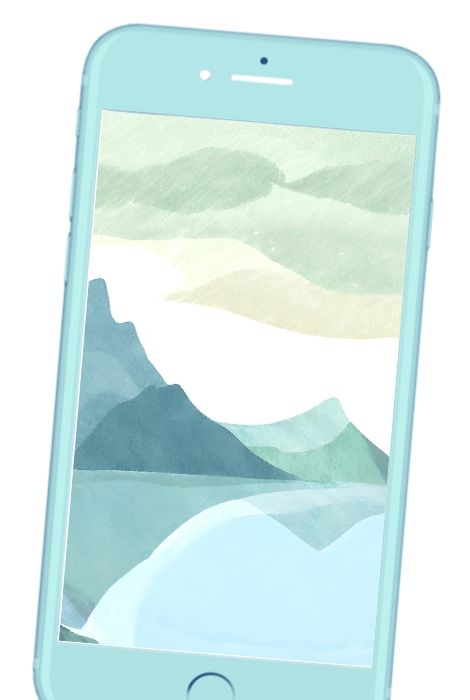Functional Freeze: When “Fine” Is Numb (and How to Thaw)
Aug 25, 2025You showed up. You remembered coffee. You crushed the presentation. Technically: fine, maybe even “good” (BTW, when did “good” start meaning fine?).
“Fine” (or “good” said in the same tone) is the placebo version of joy. It’s what high-functioning looks like when the lights are on but no one’s home. It’s the watered-down, decaf version of alive.
Welcome to functional freeze-where high-functioning looks glossy on the outside and feels like drywall dust on the inside. That’s your nervous system choosing safety-through-shutdown while you keep performing like a pro.
What Functional Freeze Is (in plain English)
Freeze isn’t laziness or weakness. It’s your body’s safety mode. You can still answer emails and be “on,” but inside you feel flat, distant, or like you’re hearing your life from the next room. Your system is conserving energy, minimizing sensation, and prioritizing survival over aliveness.
Translation: you’re not broken-you’re efficient… and over‑efficient.
“Good Enough” Isn’t Growth
Here are some signs you are ‘functionally frozen’:
- You smile on cue while you’re mentally on airplane mode.
- Meals happen, but taste doesn’t. (Auto-pilot eating. “Did I even chew?”)
- You scroll to “relax,” but everything registers as grey static.
- You keep peace in relationships by quietly overdrafting your nervous system.
- You can run a crisis like a pro but unravel when the day is calm.
- Micro-decisions feel heavy (What to wear? Reply now or later? Everything = friction).
- Pleasure requires proof. Rest needs a performance review. You do nothing without an ROI.
- You forget to eat and call it discipline.
- You downplay exhaustion in relationships because you can still perform.
- You’re one surprise away from an internal blue screen of death.
- You’ve perfected lines like:
- “I’m not in crisis. So grateful.”
- “Better than last year.”
- “It’s all… fine.”
Real talk: “fine” is a safety strategy, not a personality. It’s a nervous system holding pattern that keeps you from shattering and keeps you from living. Survival became the baseline. This isn’t a moral failure. It’s a heroic overdrive that kept collapse off your calendar-and kept you locked out of actually being alive.
Why You Stay Stuck Here
- Numb is familiar; feeling feels risky. Familiar flatness beats feelings that might swamp you.
- Control has been your security system; vulnerability feels like an open door.
- Wanting more feels like greed when your brand has been “grateful.”
- Performance became identity. As sociologist Tressie McMillan Cottom argues, when we lack a story that holds us, we default to performing one that will be rewarded. It’s easier than being real.
- Culture colludes. Diet culture, hustle culture, and purity culture all praise restriction. Restrict food, restrict need, restrict emotion. Look how “together” you are.
Your survival strategy became the cage-and the key is in your pocket.
Curious where you land on the buffer-freeze-burnout spectrum?
Take the quiz → I’m done with just “fine”
The Mechanics (Briefly-no lecture)
Freeze is a protective state-your system downshifts to conserve energy and avoid threat. You’re not “broken;” you’re parking break is on. Tiny, repeatable cues can widen your capacity again: safe sensation, low-stakes movement, co-regulation (yes, with actual humans), and micro-permissions to want what you want. Translation: you don’t need a personality transplant; you need better exits from shutdown.
What Thriving Actually Looks Like (Spoiler: it’s not something you can put on a letterboard)
Thriving is scrappy, embodied, and wildly effective. It’s not “chill girl.” It’s well-resourced.
- Waking without dread more days than not.
- Feeling emotions-messy ones included-without shame or spiral.
- Eating the cookie without negotiating.
- Crying without collapsing, breaking, or guilt-tripping yourself..
- Asking for help without apologizing.
Thriving is not spotless. It’s alive and still effective.
What Helps Your Emotional Expansion?
Whatever keeps you “not crumbling” isn’t the finish line. You deserve outcomes beyond tolerance: capacity, connection, desire, play. The work is emotional expansion-teaching your system it’s safe to feel again and building skills to hold more life without burning out.
You don’t need more filters. You need more range.
Therapy is a tool, not a throne. If you have gotten to functional, that great - that’s stabilization. Now upgrade the mission: build a life that feels like you, not just one you can endure. Therapy that stops at coping cements the freeze. Therapy that expands capacity-body, boundaries, belonging-creates aliveness.
Micro-Interventions That Actually Thaw
- The 3×30 Reset
Three times today, give yourself 30 seconds of honest sensation: press feet into the floor, feel the chair, name 3 textures you can touch. You’re telling your system: “We’re here. We’re safe.” - Low-Stakes Movement
No punishment workouts. Two minutes: shoulder rolls, jaw unclench, hip circles, or a 90-second walk to the mailbox. Movement ≠ merit; it’s signal routing. - Orient, then decide (30 seconds).
Name 3 colors, 3 sounds, 3 textures you can touch. You’re back in the room; now choose the next smallest right thing. - Co-Regulate on Purpose
Pick one human whose nervous system isn’t chaos. Set a 10-minute “parallel time” (sit near, fold laundry, no fixing). Bodies talk. Borrow calm. - Pleasure Practice (2% Rule)
Add 2% more pleasure to something you already do. Warmer mug, softer light, better soundtrack. Bump aliveness by ~2%: open a window, take a brisk 3‑minute walk, add a protein + carb snack, text one honest sentence to a safe person. Freeze thaws when your body learns that today contains any good sensation, not just duty. - One Boundary Before Noon
Say no, ask for a deadline, or let an email wait two hours. Micro-respect builds macro-self-trust. Your nervous system needs proof that you will protect it. Say: “I won’t make it today.” Full stop. No emotional invoice attached. - Temperature is a tool.
Cold water on wrists/face or a warm shower can up‑ or down‑shift your system without a dissertation. - Replace the doom‑scroll with a body cue.
Every time you unlock your phone, sip water or stretch for 20 seconds first. If that feels impossible, you just diagnosed the problem.
None of this is punishment. You don’t have to earn food, rest, or care. Ever.
Tough Questions That Melt the Shell
- When did I last feel wonder (not just relief or productivity)?
- What would today look like if I stopped performing “fine” for five minutes?
- If I respected my limits, what would I decline this week?
- Am I at peace or just not in crisis?
- If I stopped outsourcing my worth to composure, what would change this week?
Bookmark your answers. They’re trail markers back to yourself. It matters.
Evidence Snapshot (for the data-hungry part of your brain)
- In the U.S., an estimated 19.1% of adults experience an anxiety disorder in a given year, and 31.1% will across a lifetime. Translation: if your system runs anxious or shut-down, you’re not the outlier-you’re statistically normal. National Institute of Mental Health
- Self-compassion training isn’t fluff. An 8-week mindful self-compassion program showed significant increases in self-compassion, mindfulness, life satisfaction, and decreases in depression, anxiety, stress, with gains maintained at 6–12 months. Self-Compassion
- Across 27 randomized controlled trials, self-compassion interventions produced moderate improvements in depression, anxiety, stress, mindfulness, and self-criticism, with especially strong effects for eating behavior and rumination. Self-Compassion
Freeze vs. Depression? (Mini-FAQ)
- Is this depression? Is functional freeze the same as depression?
Not exactly. They can overlap, but freeze is a state (your system downshifts to conserve energy) that can happen even when you’re outwardly acting like everything's fine. Depression is a pattern that persists over time and affects mood, motivation, and thinking. If you’re unsure, get a professional consult.
Sometimes freeze and depression overlap (muted motivation, flat affect). But depression tends to pull everything down (sleep, appetite, ability to feel pleasure). Freeze often lifts when safety cues and connection increase. If functioning is tanking, get evaluated-there’s no trophy for white-knuckling. - How long does it take to thaw?
Short-term shifts can happen in minutes. Sustainable change comes from routine nervous‑system friendly choices, boundary upgrades, and support. Weeks to months-not forever. It’s less than your inner critic warns you, and easier, too, if you start micro. Systems shift with consistency, not intensity. Think weeks of tiny reps, not a weekend bootcamp. - Do I have to talk about childhood?
Only if it helps. Many gains come from present‑day skill‑building and lifestyle edits that respect your limits. You might, later. Right now, focus on exits: body-based cues, relational safety, and micro-choices that make today 2% more livable. - If I get softer (have more emotion or self-compassion), will I get lazy?
No. Self-respect breeds better output than self-punishment ever did. Compassion reduces rumination and improves regulation-that’s efficiency, not indulgence. (See the research above.) - Can high achievers experience freeze?
Constantly. Competence hides collapse risk. That’s why we measure by internal signals, not external output.
Mirror Reminders
Save these:
- I’m allowed to want more than survival.
- Feeling is not failure; it’s data.
- My worth isn’t my composure.
Quotes for the Over‑Performers
- “When you don’t know what your story is, the world will fill it in for you.” - Tressie McMillan Cottom
- “Your silence will not protect you.” - Audre Lorde
- “What we cannot imagine cannot come into being.” - bell hooks
- “To display the lantern of soul in shadowy times like these-to be fierce and to show mercy toward others-both are acts of immense bravery and greatest necessity.” - Clarissa Pinkola Estés
- Or you might have heard this version: “Owning our darkness is the bravest act of all.”
Take the Next Step → Self‑Assessment Quiz
Want a clear read on where you are-and what to do next?
Take Am I Thriving… or Just Barely Coping? now.
Built for high‑achieving humans who are done pretending they’re fine.
Resources That Actually Help
- Psychology Today: emotional burnout & thriving vs. coping
- VeryWell Mind: high achiever mental health care
- NIMH: current anxiety/depression stats for women
- Self-Compassion by Dr. Kristin Neff: evidence-based practices
- NEDA: reclaiming body neutrality & anti-diet tools
- NCTSN: understanding how trauma locks down feeling
If You Only Remember One Thing
You haven’t failed. Your body succeeded at protecting you. Now it needs permission-and practice-to choose alive over numb.
Take the quiz and get your next, smallest step.



